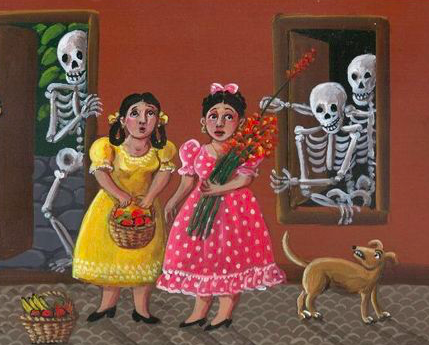Oh, you betcha.
Our favorite thinker in this area is Ernest Becker.
Becker was “an American cultural anthropologist and interdisciplinary thinker and writer. He wrote several books on human motivation and behavior, most notably the 1974 Pulitzer Prize-winning work, The Denial of Death. In it, he argues that “the basic motivation for human behavior is our biological need to control our basic anxiety, to deny the terror of death.” (Keen 1973). Becker suggested that a significant function of culture is to provide successful ways to engage in death denial.”
Becker didn’t just influence the Death Positive Movement. He also influenced the group of psychologists who developed Terror Management Theory (TMT).
The theory was inspired by the writings of Becker, and was initiated by two relatively simple questions: Why do people have such a great need to feel good about themselves?; and Why do people have so much trouble getting along with those different from themselves?
More explanation on How the Unrelenting Fear of Death Shapes Our Behavior.
It is likely that the fear of death has influenced major events in world history. Many people and studies have shown how politicians like Donald Trump have won support and gained a loyal following by employing death and death imagery and by manipulating our fear of death.
Ernest Becker’s Final Interview
In 1974 Sam Keene would conduct a final interview with a dying Becker from his hospital room in Vancouver. In it they discuss everything from philosophy, to religion, and politics and how inevitably everything is tied to our denial of death. You can listen to the interview, or read a rough transcript, courtesy of the Ernest Becker Foundation, whose archive now lives on through ISSEP.


